
Eric J. Sherman, MD, examines the phase 3 COSMIC-311 trial with cabozantinib in radioiodine-refractory differentiated thyroid cancer.

Your AI-Trained Oncology Knowledge Connection!


Eric J. Sherman, MD, examines the phase 3 COSMIC-311 trial with cabozantinib in radioiodine-refractory differentiated thyroid cancer.

Eric J. Sherman, MD, highlights trends he observed with immunotherapy in the head and neck cancer space.

Eric J. Sherman, MD, of Memorial Sloan Kettering Cancer Center highlights research on adjuvant capecitabine in nasopharynx cancer.

Pimitespib significantly improved progression-free survival while prolonging overall survival compared with placebo to treat patients with advanced gastrointestinal stromal tumor.

Responses to selpercatinib in patients with pretreated medullary thyroid cancer were noted irrespective of therapy regimens received in prior lines, according to data from the 2021 ASCO Annual Meeting.

Data from 2 clinical trials proved that larotrectinib is efficacious and safe in treating adults and children with NTRK fusion-positive central nervous system cancers.

Evidence of preliminary activity was noted with the use of the RET inhibitor selpercatinib in pediatric patients with solid tumors harboring RET alterations.

With further follow-up, lifileucel (LN-144) continued to show durable responses in patients with heavily pretreated advanced or metastatic melanoma who have progressed on multiple therapies, including prior anti–PD-1/PD-L1 therapy

In an updated analysis of the combination of lenvatinib and pembrolizumab for patients with advanced melanoma efficacy results continue to show a durable response.

Nivolumab monotherapy, or in combination with ipilimumab, continued to demonstrate durable improvements in overall survival compared with ipilimumab alone in patients with previously untreated advanced melanoma.
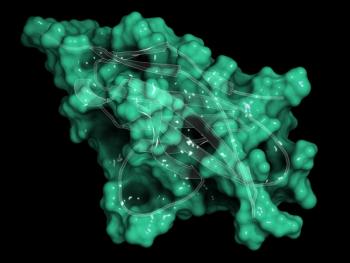
About 40% of patients who progressed on placebo following resection of melanoma experienced an objective response with crossover to pembrolizumab in the phase 3 EORTC 1325/KEYNOTE-054 trial.

A higher overall response rate was noted with lifileucel and pembrolizumab versus pembrolizumab alone in patients with checkpoint inhibitor–naïve advanced melanoma, according to phase 2 trial results that were reported at the 2021 ASCO Annual Meeting.

While selumetinib was well-tolerated, it did not drive objective responses.

For patients with NRG1 fusion–positive cancers, zenocutuzumab represents a promising novel targeted therapeutic option.

Patients with advanced synovial sarcoma who received treatment with catequentinib experienced improved disease control and progression-free survival compared with dacarbazine.

Results of the phase 2 SPEARHEAD-1 trial were presented at the 2021 ASCO Annual Meeting, with a high overall response rate reported with afamitresgene autoleucel in advanced synovial sarcoma or myxoid/round cell liposarcoma.

The phase 1 dose-finding CTNO1552101 trial of TN0155 in adults with advanced solid tumors reported initial results at the 2021 ASCO Annual Meeting.
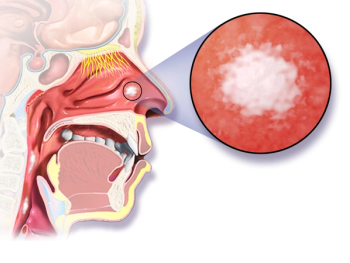
Results of the phase 3 JUPITER-02 trial presented at ASCO 2021 support the use of toripalimab plus chemotherapy for recurrent or metastatic nasopharyngeal carcinoma.
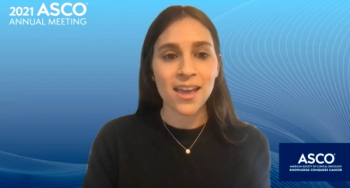
CancerNetwork® sat down with Alison Schram, MD, to discuss her thoughts on research with the greatest potential to positively influence patient care being presented at the 2021 American Society of Clinical Oncology Annual Meeting.

Based on outcomes from a study involving patients with cancer, Medicaid may benefit from expansion in certain areas where eligibility limits hinder adequate coverage.

Prostate cancer in African American men was improved with higher rates of screening for prostate-specific antigen.

Seventeen years of data indicate that HPV-related cervical cancer incidence is declining, but other tumors related to the virus persist.

Progression-free survival more than doubled when relatlimab was added to nivolumab to treated patients with previously untreated, unresectable or metastatic melanoma.

The MSK expert discussed how telemedicine may change genetic testing and its access for patients.

The MSK expert explained that pre- and post-test education on genetic testing also improved family discussions about their risk.

The MSK expert explained that pre- and post-test educatin on genetic testing could help patients and providers alike to better understand the results.

Using acupuncture to help manage pain associated with cancer treatment, may offer additional tools to help manage function and quality of life in survivors, according to Jun J. Mao, MD, MSCE.

The MSK expert discussed what pre- and post-test online education consists of in testing for the Ashkenazi Jewish BRCA mutations in the US healthcare system.
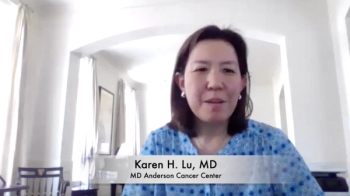
The MD Anderson Cancer Center expert spoke about the key takeaways from a trial designed to test whether pre and/or post-test genetic counseling is needed to optimally deliver online accessible genetic testing.
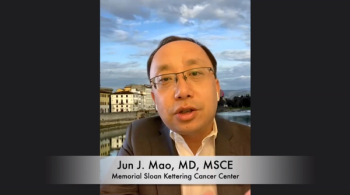
At the 2020 ASCO Virtual Program, Jun J. Mao, MD, MSCE, presented a study designed to evaluate the comparative effectiveness of electro-acupuncture and auricular acupuncture versus usual care in managing pain in cancer survivors.